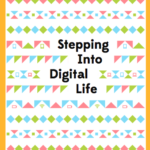Fresh research from Mozilla, supported by the Bill & Melinda Gates Foundation, explores how low-income, first-time smartphone users in Kenya experience the web — and what digital skills can make a difference
Three billion of us now share the Internet. But our online experiences differ greatly, depending on geography, gender and income.
For a software engineer in San Francisco, the Internet can be open and secure. But for a low-income, first-time smartphone user in Nairobi, the Internet is most often a small collection of apps in an unfamiliar language, limited further by high data costs.
This undercuts the Internet’s potential as a global public resource — a resource everyone should be able to use to improve their lives and societies.
Twelve months ago, Mozilla set out to study this divide. We wanted to understand the barriers that low-income, first-time smartphone users in Kenya face when adapting to online life. And we wanted identify the skills and education methods necessary to overcome them.
To do this, Mozilla created the Digital Skills Observatory: a participatory research project exploring the complex relationship between devices, digital skills, social life, economic life and digital life. The work — funded by the Bill & Melinda Gates Foundation — was developed and led by Mozilla alongside Digital Divide Data and A Bit of Data Inc.
Today, we’re sharing our findings.
 For one year, Mozilla researchers and local Mozilla community members worked with about 200 participants across seven Kenyan regions. All participants identified as low income and were coming online for the first time through smartphones. To hone our focus, we paid special attention to the impact of digital skills on digital financial services (DFS) adoption. Why? A strong grasp of digital financial services can open doors for people to access the formal financial environment and unlock economic opportunity.
For one year, Mozilla researchers and local Mozilla community members worked with about 200 participants across seven Kenyan regions. All participants identified as low income and were coming online for the first time through smartphones. To hone our focus, we paid special attention to the impact of digital skills on digital financial services (DFS) adoption. Why? A strong grasp of digital financial services can open doors for people to access the formal financial environment and unlock economic opportunity.
In conducting the study, one group of participants was interviewed regularly and shared smartphone browsing and app usage data. A second group did the same, but also received digital skills training on topics like app stores and cybersecurity.
Our findings were significant. Among them:
- Without proper digital skills training, smartphone adoption can worsen — not improve — existing financial and social problems.
- Without media literacy and knowledge of online scams, users fall prey to fraudulent apps and news. The impact of these scams can be devastating on people who are already financially precarious
- Users employ risky methods to circumvent the high price of data, like sharing apps via Bluetooth. As a result, out-of-date apps with security vulnerabilities proliferate
- A set of 53 teachable skills can reduce barriers and unlock opportunity.
- These skills — identified by both participants and researchers — range from managing data usage and recognizing scams to resetting passwords, managing browser settings and understanding business models behind app stores
- Our treatment group learned these skills, and the end-of-study evaluation showed increased agency and understanding of what is possible online
- Without these fundamental skills, users are blocked in their discoveries and adoption of digital products
- Gender and internet usage are deeply entwined.
- Men often have an effect on the way women use apps and services — for example, telling them to stop, or controlling their usage
- Women were almost three times as likely to be influenced by their partner when purchasing a smartphone, usually in the form of financial support
- Language and Internet usage are deeply entwined.
- The web is largely in English — a challenge for participants who primarily speak Swahili or Sheng (a Swahili-English hybrid)
- Colloquial language (like Sheng) increases comfort with technology and accommodates learning
- Like most of us, first-time users found an Internet that is highly centralized.
- Participants encountered an Internet dominated by just a few entities. Companies like Google, Facebook and Safaricom control access to apps, communication channels and more. This leads to little understanding of what is possible online and little agency to leverage the web
- Digital skills are best imparted through in-person group workshops or social media channels.
- Community-based learning was the most impactful — workshops provide wider exposure to what’s possible online and build confidence
- Mobile apps geared toward teaching digital skills are less effective. Many phones cannot support them, and they are unlikely to “stick”
- Social networks can be highly effective for teaching digital skills. Our chatbot experiment on WhatsApp showed positive results
- Local talent is important when teaching digital skills.
- Without a community of local practitioners and teachers, teaching digital skills becomes far more difficult
- Research and teaching capacity can be grown and developed within a community
- Digital skills are critical, but not a panacea.
- Web literacy is one part of a larger equation. To become empowered digital citizens, individuals also must have access (like hardware and affordable data) and need (a perceived use and value for technology).
Mozilla’s commitment to digital literacy doesn’t end with this research. We’re holding roundtables and events in Kenya — and beyond — to share findings with allies like NGOs and technologists. We’re asking others to contribute to the conversation.
We’re also rolling our learnings into our ongoing Internet Health work, and building on the concept that access alone isn’t enough — we need solutions that account for the nuances of social and economic life, too.
Read the full report here.


























